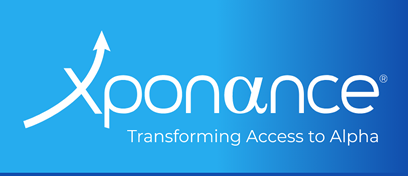About Global Market Outlook Reports
Our CIO, Tina Byles Williams, publishes our market outlook on a quarterly basis, based on research that examines market conditions over a three- to six-month period. These quarterly analyses serve as key inputs to our fund construction process, which incorporates strategic tilts to the market segments we believe will outperform over a six- to 12-month time frame. For global equity portfolios, these tilts incorporate regional, sector, and capitalization strata as well as investment process and style factors. For U.S. equity portfolios, tilts include sector, capitalization strata, investment process, and/or style factors.
Our objective is to construct a portfolio of “best in class” investments with weightings consistent with our overall investment strategy.
FIS Group Global Market Outlook Reports
Too Good to Be True: The Failure of Defensive Managers During Recent Inflationary Shocks
The failure of the returns-based approach, along with some interesting dynamics observed in factor contributions, opens an extremely interesting avenue for future analysis. What role did the macroeconomic regime (inflation, top line growth, and interest rates) play in the “defensiveness” of strategies, and what can be done to avoid misclassifying strategies during sharp regime changes?
U.S. Fixed Income: Q4 2023 Update
The 4th quarter Treasury and spread rally rescued the broad fixed income market from another year of negative or barely positive (depending on sector) returns. In traditional bond market fashion, however, we find much to worry about with stretched valuations in most of the spread sectors and an uncertain path forward for the economy and interest rates.
The View From the Top: What the Markets Look Like at a Potential Top of the Rate Cycle
Investors’ 2023 New Years’ resolution was apparently to forgive and forget their travails of 2022, as global markets spent 2023 shrugging off the prior years’ anxieties. Excluding emerging East Asia, major global markets have already fully recovered from their losses related to the inflation induced rate cycle kicked off in early 2022.
Systematic Global Equities: Q4 2023 Update
As 2023 drew to a close, the financial markets began to manifest the early signs of a soft-landing scenario, marked by a robust rally in equity markets in the fourth quarter, showcasing double-digit gains. This period was characterized by broadening of market strength, with notable outperformance by small-cap stocks, heavily shorted names, lower-quality companies, unprofitable tech, and a mix of long-duration, meme, cyclical, and value stocks.
Time for a New China Strategy? The Case for Decoupling Asset Allocation in Chinese Risk Assets: Q3 2023 Market Outlook
Already responsible for an estimated $5 billion in stimulative consumer spending – the equivalent of the entire annual earnings of Starbucks, American Airlines, or FedEx – the Taylor Swift ‘Eras’ Tour is doing more than its part to save the global economy. However, the economic phenomenon being dubbed ‘Swiftonomics’ will forsake China, as the pop legend’s tour plays four dates in Japan and a record six dates in Singapore, but not in the world’s second largest economy.
Shades of Value: Navigating the Nuances of Value Index Differences
In this update we review the results of the most recent Russell 1000 Large Cap Value annual Style Index rebalance that occurred on June 23rd. We also compare the exposures of the Russell 1000 Value index versus the S&P 500 Value index at 06/30/23 and consider the potential impact of factor and sector differences between the indexes on investors targeting large cap value exposure.
Market Insights Alert
Papers: FIS Group Proprietary Research
Beyond Brexit
Last night’s Brexit vote reiterated just how out of touch financial and political elites in the UK are with the mass population. Fears of similar class polarization now cast their gaze on the recent rise of similar isolationist political movements elsewhere in Europe...
A Short Note On Brazil’S House Of Cards
Brazilians are famous (or at least stereotyped) for their supposedly laid back “tropical” attitude towards life. Generations of foreign visitors smitten by the profound beauty and docility of Brazil’s natural landscape have marveled at “the Brazilian way” (o jeitinho brasileiro) of managing what to outsiders appears to be a relaxed, happy-go-lucky life amid structural chaos, bureaucratic ineptitude, and economic disarray. The old and famous Brazilian joke cited above pokes fun at these seeming contradictions.
What Is Really Happening In China? — A Late-Year Revisit And Local Insights From Our China Trip
Since mid-June this year, the wild ride in the Chinese A-share stock market along with deteriorating economic and profit data have unnerved many global investors. Against this backdrop, the Chinese government’s remarkably stable GDP growth reports of 7% for Q2 and 6.9% for Q3 have engendered increasing concern over the credibility of official figures. In an attempt to counter this slowdown, the government has rolled out a series of measures designed to stimulate demand. It has cut interest rates and reduced bank reserve requirements seven times this year, released funds for infrastructure investment, cut taxes on automobile sales and lowered the required down-payment for home mortgages. Historical precedent suggest that as China transitions to a “middle income” economy, the path of least resistance is downward. Based in part on observations from our recent visit to China, in this report, we posit that the key to understanding opportunities and risks in China is to:
Transition To A Chinese-Style “New Normal”: Less Is More
In China, economic results of late have largely been disappointing, with traditional headline indicators highlighting sluggish growth and mounting deflation risk. Our view is that China is experiencing the economic transition to a so-called “New Normal”, and the prevailing growth slowdown, gauged by traditional industrial-focused indicators, is both necessary and essential for the ongoing economic transformation. In this paper, we will discuss the key priorities of the reform agenda, along with the Chinese government’s progress in implementing these reforms to date. In the last section, we will discuss the nascence of this round of the bull stock market and the recent massive correction, along with our short-term and long-term expectations. The bottom line is that we are positive on China’s economic reform and the government’s efforts in supporting capital market reform. We also believe that there will be more upside in Chinese A-shares, but that the next leg will be characterized by extreme volatility.
Big Is Bad (Really Bad) In Frontier Market Equities
For 19 years FIS Group has successfully invested with entrepreneurial managers in global equities markets based on the considerable body of research suggesting that talented, high-active share, entrepreneurial managers are best positioned to outperform market benchmarks, net of fees. We believe that there are generally two reasons, both timeless and universal, why this inefficiency will continue. First, entrepreneurs with “skin in the game” are motivated to work harder, as entrepreneurs generally are in every other business across the time and space of human history. Second, in the modern markets of listed equities, size and scale are the enemies of alpha. While we have long known both of these simple (but nonetheless surprisingly ignored) truths to be self-evident in asset management, the significant opportunity of investing with entrepreneurial managers continues unabated. However in our firm’s 19 years of investing and decades more of experience of our principals, we have rarely (if ever) seen so clear a demonstration of both of these sources of alpha in one simple chart.
Observations On The Greek Debt Crisis From Across The Pond
As Greece’s negotiations with its creditors devolved over the weekend fostering a global rout in risk assets on Monday, through my attendance at a global investor forum in Europe, I solicited the thoughts of institutional investors that live and work closer to the epicenter of the crisis. Not surprisingly, I found a wide divergence of risk appetites and aversion. However, my overwhelming impression is that, while many recognize a high risk of short term volatility, investors here are quite sanguine about the medium and long-term risks of a Greek default or even a so called “Grexit”. This document reflects my observations from the various presentations and conversations over the last few days. This commentary borrows heavily in particular from a presentation and paper by Marko Papic, from BCA Research.
Videos And Webinars
Market Outlook and Research Webinars
No Results Found
The page you requested could not be found. Try refining your search, or use the navigation above to locate the post.








